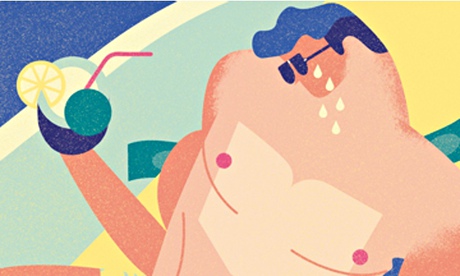
Perhaps you recall the furore a few weeks ago when Tom Perkins, a stratospherically wealthy venture capitalist from San Francisco, wrote a letter to the Wall Street Journal, comparing criticism of America's ultra-rich to Kristallnacht. Yes, that Kristallnacht. The Nazi one. Perkins apologised, but in an editorial the Journal claimed the uproar proved his point: "Maybe the critics are afraid that Mr Perkins is on to something?" Maybe. Or maybe it was a very stupid comparison, made only marginally less offensive by its absurdity.
Still, it's surprising how often one encounters this siege mentality – albeit less obnoxiously expressed – among the 0.1%. "The extremely wealthy are objectively far wealthier, far more politically powerful and find a far more indulgent political class than at any time in almost a century," wrote the commentator Josh Marshall. So how come they're more touchy about criticism than ever? One theory: the more cushioned your life is, the more you're surrounded by lackeys and flatterers, the more horrifying any minor intrusion on that comfort will seem. The more perfect things get for you in general, the more intensely you'll feel it when something isn't.
It would be nice to believe that this curious psychological booby-trap applies only to the highly privileged, so that the rest of us coud feel superior. And certainly it's in those rarefied circles that it's easiest to spot. Doesn't it help explain, for example, the familiar phenomenon of the celebrity meltdown, in which some actor or supermodel – their perfect world briefly tarnished by some less-than-perfect hotel concierge or PA – reaches for a telephone as a missile? Then again, if you've ever felt cross about the absence of your favourite brand of coffee at the supermarket, or frustrated by slow broadband, you're doing something similar. In that sense, the tale of Tom Perkins is just an extreme illustration of how, to quote the comedian Louis CK, "everything's amazing and nobody's happy". (He recalled a fellow aeroplane passenger complaining that the in-flight WiFi didn't work. "But you're sitting in a chair in the sky!") Actually, he might have added, it's worse than that, because the more amazing things get, the less it'll take to make you dissatisfied.
A similar pattern of thinking can distort how we think about serious social problems. In his book The Better Angels Of Our Nature, Steven Pinker amasses evidence to show we're living in the most peaceful era since humanity began. But it doesn't feel that way, because "the decline of violent behaviour has been paralleled by a decline in attitudes that tolerate or glorify violence, and often the attitudes are in the lead."
Some bad phenomenon – workplace bullying, say – may strike us as appalling. But part of the reason it stands out is that aggressive behaviour in general is so rare, and our standards so high, compared with previous eras. In this area, high standards are a good thing, of course, since workplace bullying ought to be eliminated. When it comes to your slow broadband, you're probably better advised to lower your standards. Yet, in both cases, it's the excellence of the wider context that makes the flaw look so bad. And when your context is more privileged than that of almost any human in history, perhaps you stop being able to see how deranged it looks when you compare your critics to Hitler.
oliver.burkeman@theguardian.com
Follow Oliver on Twitter

